Premium Only Content

Parents Beware Internet Porn Cartoon Funny Starting Conversation With Your Kids
The Internet can be wonderful for kids. They can use it to research school reports, communicate with teachers and other kids, and play interactive games. For many of us, we see our online lives and offline lives as different, but children are growing up with technology and the internet and for them there isn’t a difference; online life and offline life is just life.
Technology can move at an extraordinarily fast pace and it can be difficult to know how to start talking to your child about what they’re doing online, who they might be speaking to or discussing the potential risks and issues.
Talking regularly with your child is the greatest tool to help keep them safe online. Talking regularly and making it part of daily conversation, like you would about their day at school, will help your child feel relaxed. It also means when they do have any worries, they’re more likely to come and speak to you.
But it can also be easy to become overwhelmed with the different technology, the language that children use, the huge number of games and apps which are available and the potential risks.
But online access also comes with risks, like inappropriate content, cyberbullying, and online predators. Using social media apps and websites where kids interact, predators may pose as a child or teen looking to make a new friend. They might prod the child to exchange personal information, such as address and phone number, or encourage kids to call them, seeing their phone number via caller ID.
Parents should be aware of what their kids see and hear online, who they meet, and what they share about themselves. Talk with your kids, use tools to protect them, and keep an eye on their activities.
A federal law, the Children's Online Privacy Protection Act (COPPA) helps protect kids younger than 13 when they're online. It's designed to keep anyone from getting a child's personal information without a parent knowing about it and agreeing to it first.
COPPA requires websites to explain their privacy policies and get parental consent before collecting or using a child's personal information, such as a name, address, phone number, or Social Security number. The law also prohibits a site from requiring a child to provide more personal information than necessary to play a game or enter a contest.
Online tools let you control your kids' access to adult material and help protect them from Internet predators. Many Internet service providers (ISPs) provide parent-control options. You can also get software that helps block access to sites and restricts personal information from being sent online. Other programs can monitor and track online activity.
More important than blocking objectionable material is teaching your kids safe and responsible online behavior, and keeping an eye on their Internet use.
Basic guidelines to share with your kids for safe online use:
Follow the family rules, and those set by the Internet service provider.
Never post or trade personal pictures.
Never reveal personal information, such as address, phone number, or school name or location.
Use only a screen name and don't share passwords (other than with parents).
Never agree to get together in person with anyone met online without parent approval and/or supervision.
Never respond to a threatening email, message, post, or text.
Always tell a parent or other trusted adult about any communication or conversation that was scary or hurtful.
Basic guidelines for parental supervision:
Spend time online together to teach your kids appropriate online behavior.
Keep the computer in a common area where you can watch and monitor its use, not in individual bedrooms. Monitor any time spent on smartphones or tablets.
Bookmark kids' favorite sites for easy access.
Check your credit card and phone bills for unfamiliar account charges.
Find out what, if any, online protection is offered by your child's school, after-school center, friends' homes, or any place where kids could use a computer without your supervision.
Take your child seriously if he or she reports an uncomfortable online exchange.
If you're aware of the sending, use, or viewing of child pornography online, call the National Center for Missing and Exploited Children at (800) 843-5678 or go online to their CyberTipline. They'll make sure the info is forwarded to law enforcement officials for investigation. Contact your local law enforcement agency or the FBI if your child has received child pornography via the Internet.
Watch for warning signs of a child being targeted by an online predator. These can include:
spending long hours online, especially at night
phone calls from people you don't know
unsolicited gifts arriving in the mail
your child suddenly turning off the computer or other device when you walk into the room
withdrawal from family life and reluctance to discuss online activities
Talk to your kids! Keep an open line of communication and make sure that they feel comfortable turning to you when they have problems online.
As kids get older, it gets a little trickier to monitor their time spent online. They may carry a smartphone with them at all times. They probably want — and need — some privacy. This is healthy and normal, as they're becoming more independent from their parents. The Internet can provide a safe "virtual" environment for exploring some newfound freedom if precautions are taken.
Talk about the sites and apps teens use and their online experiences. Discuss the dangers of interacting with strangers online and remind them that people online don't always tell the truth. Explain that passwords are there to protect against things like identity theft. They should never share them with anyone, even a boyfriend, girlfriend, or best friend.
Taking an active role in your kids' online activities helps ensure that they benefit from them without being exposed to the potential dangers.
Thousands of videos on YouTube look like versions of popular cartoons but contain disturbing and inappropriate content not suitable for children.
If you're not paying much attention, it might look like an ordinary video featuring Peppa Pig, the cheeky porcine star of her own animated series. But soon after pressing play on this particular YouTube clip, the plot turns dark. A dentist with a huge syringe appears. Peppa's teeth get pulled out. Distressed crying can be heard on the soundtrack.
Parent and journalist Laura June almost immediately noticed something was not quite right as her three-year-old daughter was watching it.
"Peppa does a lot of screaming and crying and the dentist is just a bit sadistic and it's just way, way off what a three-year-old should watch," June says. She wrote about her experiences on the website The Outline.
"But the animation is like close enough to looking like Peppa - it's crude but it's close enough that my daughter was like 'This is Peppa Pig.'"
It's far from an isolated case - BBC Trending has found hundreds of similar videos of children's cartoon characters with inappropriate themes. In addition to Peppa Pig, there are similar videos featuring characters from the Disney movie Frozen, the Minions franchise, Doc McStuffins, Thomas the Tank Engine, and many more.
Some of the videos are parodies or have such over-the-top content that they're clearly meant for mature audiences. Others are unauthorised copies of authentic cartoons or use the characters in innocent ways - troubling to copyright lawyers perhaps, but not necessarily harmful to children.
However many, like the video Laura June's daughter saw, both contain disturbing content and can pass for the real cartoons, particularly when viewed by children.
Hundreds of these videos exist on YouTube, and some generate millions of views. One channel "Toys and Funny Kids Surprise Eggs" is one of the top 100 most watched YouTube accounts in the world - its videos have more than 5 billion views.
Its landing page features a photo of a cute toddler alongside official-looking pictures of Peppa Pig, Thomas the Tank Engine, the Cookie Monster, Mickey and Minnie Mouse and Elsa from Frozen.
But the videos on the channel have titles like "FROZEN ELSA HUGE SNOT", "NAKED HULK LOSES HIS PANTS" and "BLOODY ELSA: Frozen Elsa's Arm is Broken by Spiderman". They feature animated violence and graphic toilet humour.
The people behind the account didn't respond to Trending's request for an interview. We attempted to contact several other producers of similar videos - and got the same result.
Trending also contacted two companies behind the cartoon series being ripped off, Disney and EntOne - the distributor of Peppa Pig. Neither wanted to comment.
So should parents take more care when it comes to allowing their children to watch cartoons on YouTube?
Sonia Livingstone is an expert on child online safety and professor of social psychology at the London School of Economics,
"It's perfectly legitimate for a parent to believe that something called Peppa Pig is going to be Peppa Pig," she says. "And I think many of them have come to trust YouTube... as a way of entertaining your child for ten minutes while the parent makes a phone call. I think if it wants to be a trusted brand then parents should know that protection is in place."
"I don't think we want to police it for the whole world," Livingstone says. "A lot of this material is satirical, creative - or actually offensive but within freedom of expression. What we need is child protection."
YouTube did not offer a spokesperson for interview, but in a statement said: "We take feedback very seriously. We appreciate people drawing problematic content to our attention, and make it easy for anyone to flag a video.
"Flagged videos are manually reviewed 24/7 and any videos that don't belong in the app are removed within hours. For parents who want a more restricted experience, we recommend that they turn off the Search feature in the app."
The company also suggested that parents use the YouTube Kids app, which is available for mobile phones and tablets, and turn on "restricted mode" which limits flagged content. It can be found at the bottom of any page on the YouTube site, but cautions that "no filter is 100% accurate".
And since Trending began investigating, several of the channels that we brought to the attention of YouTube have been removed - including the one containing the video of fake Peppa visiting the dentist.
-
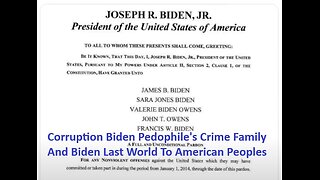 18:56
18:56
What If Everything You Were Taught Was A Lie?
8 days agoCorruption Biden Crime Family And Biden Last World To American Peoples See Text Below
2.07K6 -
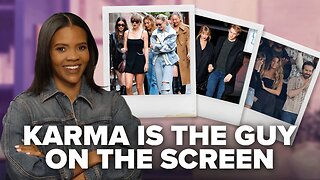 43:37
43:37
Candace Show Podcast
3 hours agoThe Taylor Swift Plot Thickens | Candace Ep 142
84.2K78 -
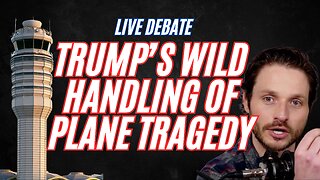 LIVE
LIVE
Common Threads
1 hour agoLIVE DEBATE: Trump's Wild Handling of Plane Tragedy
141 watching -
 LIVE
LIVE
LFA TV
8 hours agoConfirmation Chaos | TRUMPET DAILY 1.30.25 7pm
659 watching -
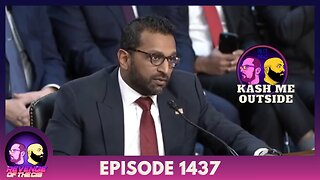 1:57:53
1:57:53
Revenge of the Cis
5 hours agoEpisode 1437: Kash Me Outside
38K15 -
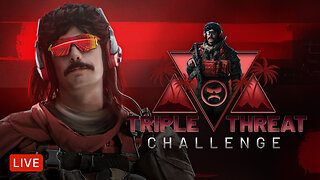 6:34:04
6:34:04
Dr Disrespect
7 hours ago🔴LIVE - DR DISRESPECT - WARZONE - CRAZY TRIPLE THREAT CHALLENGE
131K28 -
 3:10:10
3:10:10
Power Slap
9 days agoPower Slap 11: Da Crazy Hawaiian vs Dumpling 2 | Thursday January 30th 12pET/9aPT
3.58M134 -
 1:19:18
1:19:18
Dr. Drew
7 hours agoDr. Peter McCullough: RFK Jr. Faces Senate Hearing Circus, As 81,000 Doctors & Experts Publish New Demand For COVID-19 Vaccine Recall – Ask Dr. Drew
94.5K28 -
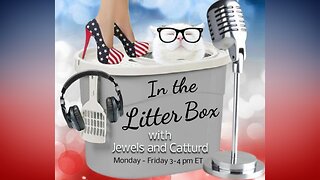 1:02:30
1:02:30
In The Litter Box w/ Jewels & Catturd
1 day agoConfirm Kash & Tulsi! | In the Litter Box w/ Jewels & Catturd – Ep. 731 – 1/30/2025
92.1K30 -
 1:54:36
1:54:36
PudgeTV
7 hours ago🟡 Practical Pudge Ep 52 | Sticker Mule CEO & Future NY Congressman - Anthony Constantino
39.8K